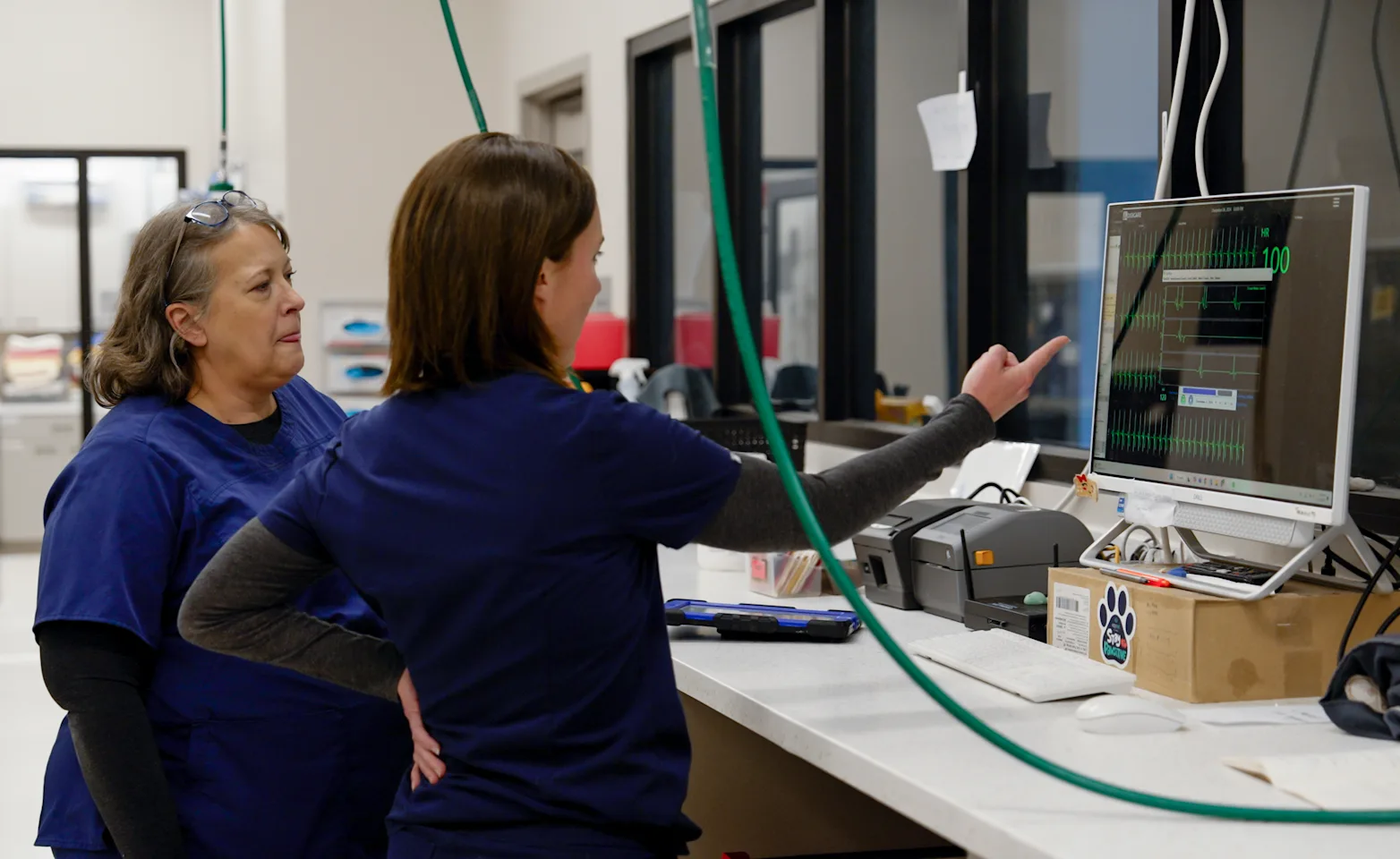South Asheville Veterinary Emergency & Specialty

Overview
If your pet requires hospitalization for a serious illness, you want to know that they are in the best hands possible. Patients with life-threatening injuries, recovering from extensive surgery, or requiring respiratory support need dedicated round-the-clock care. Our critical care team, led by a board-certified veterinary criticalist, has extensive experience treating and monitoring the sickest patients. They provide thorough, compassionate care to ensure every patient under their watch has the best chance of recovery.

The South Asheville Veterinary Emergency and Specialty critical care team works closely with our emergency veterinarians, as cases are often transferred to the critical care unit after admission to our emergency department. Our critical care team also routinely collaborates with many other SAVES specialists, including neurologists, internists, surgeons, and oncologists, to ensure your pet receives the most comprehensive care available.
Blood work
A variety of specialized blood tests, including acid-base analysis and arterial blood gas, are available to help us monitor each pet’s specific condition.
Diagnostic imaging
Images obtained via digital X-ray, ultrasound, computed tomography (CT) or magnetic resonance imaging (MRI) can help us diagnose or monitor a variety of conditions. Point of care ultrasound at the bedside is used to guide life-saving procedures for pets with heart failure, fluid around their heart, or abdominal infection.
Fluid therapy
Most critically ill patients benefit from continuous fluid support to maintain hydration or restore blood volume associated with bleeding, vomiting, diarrhea, or kidney disease.
Transfusion therapy
Critical patients may require a transfusion with whole blood or blood products to replace lost blood components.
Oxygen therapy
Oxygen support is available for pets who cannot sufficiently oxygenate their blood due to conditions such as congestive heart failure, pneumonia, or smoke inhalation. More than conventional flow-by oxygen therapy and special oxygen cages, our hospital offers high-flow nasal oxygen, which is a new modality that provides heated, humidified oxygen equivalent to a mechanical ventilator, but without the need for deep sedation or anesthesia. Your pet can eat, sleep, and walk around while breathing more comfortably.
Nutritional support
Pets require adequate nutrition to heal, yet many critical patients do not feel well enough to eat. Our critical care team provides nutritional support ranging from hand feeding, to feeding tube placement, to intravenous nutrition, to ensure each pet receives the nutrition they need.
Pain management
Pets in critical condition are often painful. Our criticalist works closely with our anesthesiology and pain management team to ensure every pet in our care is comfortable and pain-free.
Pleural suction
Trauma or disease can cause fluid or air accumulation in the thoracic cavity. Chest tube placement allows the thoracic space to be continuously evacuated to allow affected pets to breathe more comfortably.
Coagulation testing
Our state-of-the-art thromboelastograph provides real-time, comprehensive monitoring of coagulation and fibrinolysis to permit individualized transfusion therapy directed at your pet’s specific needs.
Pulse oximetry
Constant monitoring helps our critical care team ensure a pet’s blood oxygen levels remain in normal range, and know when to provide supplemental oxygen if levels become too low.
Continuous electrocardiography (ECG)
ECG monitoring provides important information about the heart’s electrical activity, and allows us to detect cardiac arrhythmias and abnormalities.
Blood pressure monitoring
Continuous blood pressure monitoring allows our critical care team to accurately tailor fluid therapy and medication doses.
Cardiac resuscitation
In the event a pet experiences cardiac arrest, our critical care team is trained to provide cardiopulmonary resuscitation (CPR), including medications, defibrillation, and compressions, to give them the best chance of recovery. Pets who successfully recover require intensive support following CPR.
